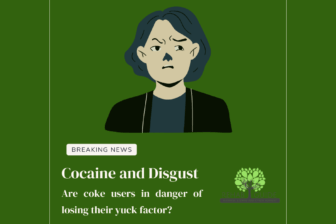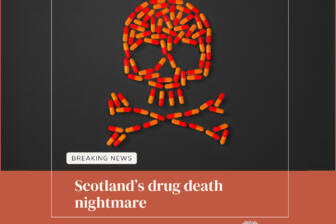How Has Lockdown Affected Your Drinking Habits and Mood?
How COVID-19 changed our mental health and alcohol use
Amongst concerns that more individuals have been turning to alcohol as a source of comfort, various studies have been conducted into people’s drinking habits during the Covid-19 lockdown around the world.
Whilst many in the UK are ecstatic over restrictions at long last easing, others are facing a harsh reality due to neglecting many aspects of self-care.
Covid-19 has imposed weeks of strict social distancing, home tutoring, isolation and furloughed employment. It has changed the way we live, and no one has been left untouched.
Not everyone copes well with change, especially those who suffer from mental health illness and stress. Throw into the mix, fear of the pandemic, financial insecurity and loneliness, and you have the perfect recipe for developing an unhealthy relationship with yourself and with alcohol.
A third of Brits have been drinking more during the lockdown
Kings College in London has reported that nearly a third of people polled (29%) reported drinking more alcohol than they normally would. This information has come to light during a recent major study conducted by the Policy Institute at King’s College London in partnership with Ipsos MORI.
Unsurprisingly, the study also showed that 43% of people in the UK have felt more lonely than usual. With doctors being less accessible, 35% of individuals have postponed seeking medical advice or treatment for illnesses unrelated to Covid-19.
The Global Drugs Survey similarly reported that more Brits have been binge drinking during the lockdown and that almost half of all drinkers have started drinking earlier in the day.
All this information points to the fact that those who have been impacted the most by the lockdown measures are those that already suffer from alcohol or mental health-related issues. The isolation and lack of medical and therapeutic support available have left many vulnerable individuals feeling alone and forgotten.
Alcoholic support curtailed during Covid-19
Professor Colin Drummond, Institute of Psychiatry, Psychology and Neuroscience, Kings College London agrees. That during a time when alcohol support for the most vulnerable is needed, the services just simply have not available. He said:
‘For people living with more serious alcohol problems, the pandemic has had a dual effect of increasing their vulnerability to relapse at a time when the support available from specialist alcohol treatment services has been significantly curtailed due to social distancing. There is likely to be a surge in people seeking help for alcohol problems as the pandemic progresses.’
Those already suffering from mental health and substance abuse problems have been hit the hardest by the lockdown. With many alcohol support services closing or operating at a far lesser capacity, asking for help, for many, has seemed pretty pointless.
Alcoholics Anonymous meetings which have been a lifeline for many in recovery have had to revert to online meetings. Understandably this method of communication can be difficult and daunting for someone new to fully benefit from.
Getting sobriety back on track after Covid-19
Whilst there is no specific data available yet as to the number of individuals in recovery from alcoholism who have relapsed, the general feeling is that the number will be worryingly high. At Rehab Guide, we receive numerous calls on a daily basis from people who have concerns about alcoholic relapse.
The first thing we would like to emphasise is that the recent unprecedented times have tested even the strongest minds and willpower. If you or a loved one are in alcoholic relapse, we can guarantee you are not alone.
If you are struggling with an alcohol problem, it is imperative that you ask for help. We understand this is a very hard thing for some to do. Yet for every individual who has overcome alcoholism, at some point they have had to ask for help, whether that be professional or through mutual aid support groups.
If you or a loved one are alcohol dependent, it is not safe to stop drinking suddenly. If you are unable to reduce your alcohol intake over a number of days and feel you have lost control, then medical intervention will likely be required. Before you can tackle the reasons underpinning your alcohol problem, it is vital that the alcohol is stopped safely first.
If you have already tried to seek help for alcoholism on the NHS, you will be well aware of the lengthy process involved and the lack of support currently available. This is why you may want to consider a private alcohol rehab for your treatment.
Alcohol detox for alcohol-dependent drinkers
Alcohol dependence is an illness, and like any other illness requires professional treatment in order to recover. Treatment is immediately available in the form of full medical alcohol detox.
By electing to go private, there are no waiting lists, and you will have access to a vast range of proven and effective alcohol treatments. Not only do our alcohol rehabs provide full medical detoxes for alcohol dependence, but they also provide evidence-based treatments, delivered by some of the country’s most distinguished alcohol counsellors and therapists.
Many individuals that suffer from alcohol addiction also have co-existing mental health problems such as anxiety, PTSD or depression. Our rehabs provide treatment programmes that treat the whole individual, including any identified mental health illnesses so that a full and lasting recovery can be achieved.
Furthermore, you have the added reassurance that our CQC registered treatment centres have implemented all of the government guidelines to ensure that they remain Coronavirus free.
Alcoholism and alcohol dependency only ever becomes progressively worse over time without the correct treatment.
Now is the time to act if you have an alcohol problem and want help.
Call Rehab Guide today for a free of charge, no-obligation assessment of your or your loved one’s treatment needs.
Are You Drinking Too Much? Try out our Alcohol Self Assessment Test.
We will take the time to listen and provide you with advice on the best alcohol treatment options available to suit your budget, location and treatment requirements.
References:
Kings College London https://www.kcl.ac.uk/news/nearly-a-third-of-uk-public-drinking-more-alcohol-than-usual-during-the-pandemic
https://www.alcoholics-anonymous.org.uk/Members/Regional-&-Local-Websites/not~in~a~region/online-groups





